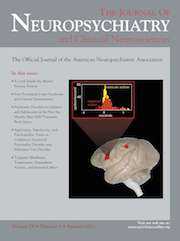Disorders of Consciousness and N400 ERP Measures in Response to a Semantic Task
Abstract
Disorders of consciousness (DOC) have been studied in recent years. In the present research, electrophysiological measures (ERPs) were used to verify the preservation of semantic linguistic processes in vegetative states (VS) and minimal-consciousness state (MCS). Eighteen patients classified as VS or MCS, and 20 controls were submitted to a semantic associative task with congruous or incongruous word sequences (auditory stimuli). An increased N400 peak amplitude within the fronto-central cortical areas was shown in response to incongruous sequences for both patients and controls. Thus, semantic processing was partially preserved in both VS and MCS patients.



